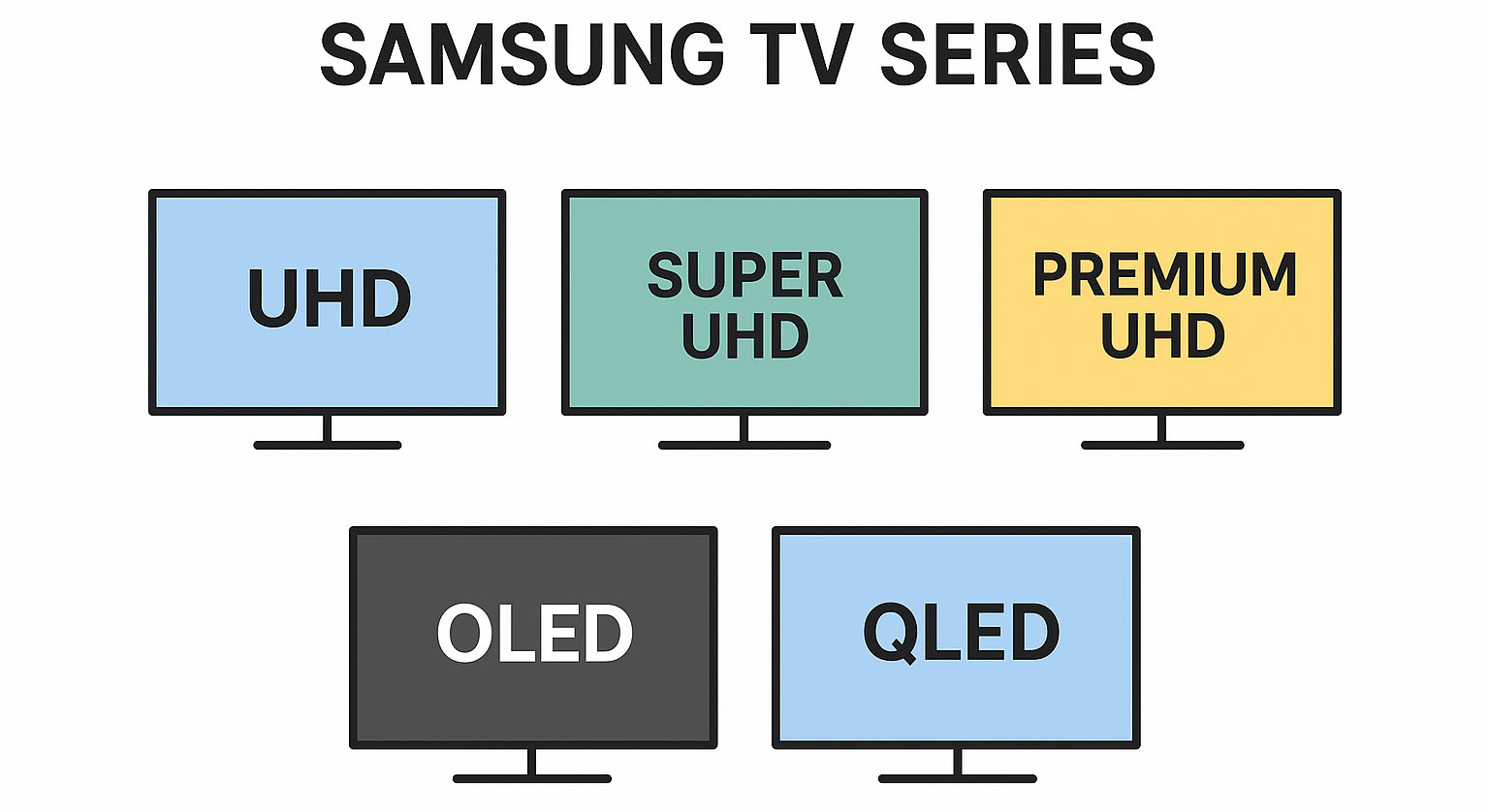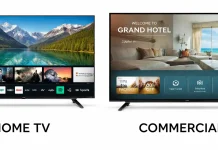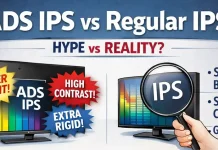In 2017, Samsung moved away from its traditional series-based classification of TVs and shifted to a lineup organized by display technologies. Although the familiar 6, 7, 8, and 9 series numbers still existed within the company’s product structure, they were no longer used as the main way to present models on the website. Instead, TVs were grouped according to their display technology and the features they offered. This change was driven by the introduction of new QLED and OLED models, and by the fact that an 8-series LED TV could not be compared to an OLED TV labeled with the same series number.
Basic Samsung TVs
In 2017, Samsung’s basic models mainly included compact TVs designed for small spaces such as kitchens, bedrooms, and secondary rooms. These TVs were usually available in 24-, 28-, and 32-inch sizes and offered HD or Full HD resolution. They provided basic smart features through the Tizen OS, had a simple slim-bezel design, and were mostly equivalent to the older 4 and 5 series. In 2017, this TV segment began to decline as the trend toward larger screen sizes increased, and manufacturers shifted to producing UHD displays.
UHD TVs (before Crystal UHD)
Samsung’s UHD line introduced 4K resolution and replaced Full HD as the basic standard for mid-range TVs. These models were generally equivalent to the previous Series 6 and the entry-level Series 7, but were marketed mainly as UHD TVs rather than by series number. They featured HDR support (HDR was advertised, but it did not actually function on these TVs due to the low panel quality), had edge-lit LED panels, and were mostly made of plastic.
The second group of UHD TVs included more advanced models with higher-quality displays. This category roughly corresponded to the upper part of Series 7 and the initial part of Series 8 in the old system. These TVs received additional software features as well as improved sound systems.
QLED Premium UHD (Super UHD) TVs
Premium UHD models were improved LED displays. They replaced the previous SUHD branding and offered noticeably better picture quality due to higher-quality panels. This category roughly corresponded to the 8 series. In 2017, Samsung introduced its QLED TVs.
The Q7, Q8, and Q9 models used panels made with new materials and Quantum Dot technology, which provided excellent color accuracy and high brightness. These models offered high brightness suitable for HDR10 and HDR10+, as well as good overall performance. Samsung focused on these TVs for the next few years and chose not to produce OLED models, although this decision later turned out to be a marketing mistake for the company.
Special TV Series (The Frame, The Serif, The Sero, The Terrace)
Samsung expanded its design-focused Lifestyle lineup in 2017 with models created to combine home décor, interior concepts, and specific usage scenarios.
The Frame
Introduced in 2017, The Frame was designed to resemble a piece of art on the wall. Art Mode allowed the TV to display paintings or photographs when idle. Customizable frames and a slim, wall-mounted profile helped it blend with various interior styles. The One Connect system reduced visible cabling and simplified installation.
The Serif
Developed together with the Bouroullec brothers, The Serif featured a distinctive “I-shaped” silhouette. It could stand on detachable legs or be placed as a decorative element in the room. This series focused on design integration rather than high-end performance and appealed to users who preferred furniture-style aesthetics.
The Sero
The Sero was created for vertical and horizontal use, rotating between portrait and landscape modes. It targeted users who frequently viewed mobile content and wanted a TV that could match smartphone-style media formats.
The Terrace
The Terrace was Samsung’s outdoor TV series. It featured a weather-resistant construction with protection against dust and moisture, along with high brightness and an anti-reflection panel for viewing in daylight. It was intended for open terraces, patios, gardens, and other outdoor environments while maintaining full Smart TV functionality.
Samsung OLED TVs
Samsung began producing widescreen OLED TVs in 2012 with the 55-inch ES9500, the company’s first OLED model ready for mass production. Each pixel in this display emitted its own light, eliminating the need for a backlight, which allowed for deep blacks, vivid colors, and a slim design.
In 2013, Samsung introduced the F9500, promoted as the first “Real OLED” TV. Despite this launch, large-scale production of OLED TVs was suspended for several years due to the immaturity of OLED technology, low reliability, frequent failures, and a limited lifespan.
Samsung resumed OLED TV production in 2022 with new models based on QD-OLED panels. These TVs combine the advantages of OLED, including self-illuminating pixels and excellent contrast, with enhanced brightness and color accuracy provided by Quantum Dot technology. Today, Samsung’s OLED TVs occupy the premium segment, delivering high image quality, advanced smart features, and excellent performance for movies, series, and gaming.






